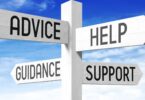Hi, I am wondering… What would it be like for you to walk through life assuming that others are doing the best they can? Yes, that’s right – assuming others are doing the best they can… I know that this might sound a bit “out there” and you may be able to poke holes in the idea in nano seconds, but please bear with me.
What would change for you the next time someone cuts you off in traffic?
How would you be different when someone close to you does something disrespectful?
From the road, to the boardroom, to the bedroom, to the kitchen, to the playground and playing field, to email, texting and social networking, living from this assumption that others are doing the best they can, can be life-altering.
Living this way does not mean that you become a pushover, or doormat or a Polly Anna. Actually on the contrary, it means that you can set better boundaries and be more compassionate with others and, also with yourself, than ever before. If someone does do something disrespectful, for example, you assume that they are doing the best they can, and if it is warranted you can, from that place, from that assumption, let them know that how they showed up was not acceptable and why. You avoid going into resentment and judgment. It is a place from which to have difficult conversations that can also be generative.
These ideas are based on the research of Brené Brown and are explored in her latest book, Rising Strong: The Reckoning, The Rumble, The Revolution. If you want to be an Attorney with A Life (AWAL) there is no doubt that you need to get good at setting boundaries so you can create that “Life”.
Brené’s discoveries were prompted by an unpleasant experience, which lead her to reach out to her therapist for help. (There is a compelling back-story and if you read the book you will get to enjoy it.) Brené’s therapist asks her whether she believes that people are generally trying to do the best they can as they go through life. Brené at this point does not choose to believe this or assume this, but she is really curious about it so she begins research on the subject, both informal and later, formally. She polls her husband, a family doctor, who so wisely says:
“I don’t know. I really don’t. All I know is that my life is better when I assume that people are doing their best. It keeps me out of judgment and lets me focus on what is, and not what should be or could be.”
Then later Brene connects these observations this to boundary setting and also to compassion. It’s fascinating and powerful.
This is some of what Brene discovered in her research:
“…the most compassionate people I interviewed also have the most well-defined and well-respected boundaries. It surprised me at the time but now I get it. They assume that other people are doing the best they can, but they also ask for what they need and they don’t put up with a lot of crap. I lived the opposite way: I assumed that people weren’t doing their best so I judged them and constantly fought being disappointed, which was easier than setting boundaries. Boundaries are hard when you want to be liked and when you are a pleaser hell-bent on being easy, fun and flexible.
Compassionate people ask for what they need. They say no when they need to, and when they say yes, they mean it. They’re compassionate because their boundaries keep them out of resentment.”
Then she asks: “How can we expect people to put value on our work when we don’t value ourselves enough to set and hold uncomfortable boundaries?”
I love these insights for a number of reasons…here are two for starters:
First, I don’t recall any teaching of compassion in law school. Do you? If it’s in the curriculum now, I am thrilled to hear it! Generally, I find that we lawyers tend to be more like Brené was before she began this particular bit of research: in judgment. We come by this honestly, from in our training “to think like a lawyer”. But, I know it is possible to still be an excellent lawyer and be compassionate. And life is so much better that way.
Second, this practice of assuming people are doing their best can be a back door into self-compassion. Have you ever noticed that when people are really judgmental of others they are even harsher judges of themselves? I have found this to be true in my years of coaching others and in my own life. So, if someone starts being less judgmental of others, there is an opportunity or even permission for them to start being less judgmental of themselves. And life is so much better that way.
I am going to stop here with this post – I think this is enough to reflect on for now.
What’s most powerful for you about these ideas?







